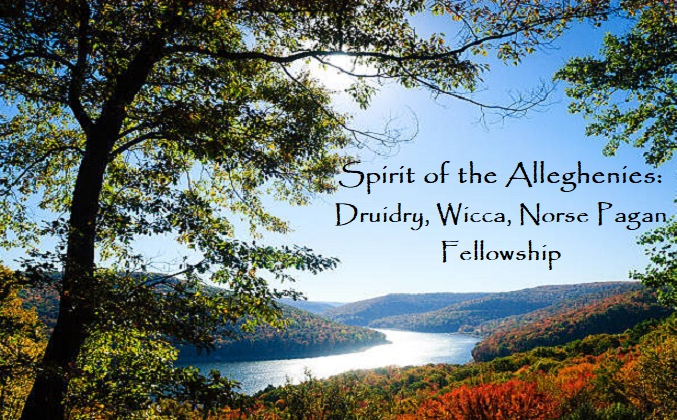How did the Ogham script originate? In this post, I will put forward an origin theory for Ogham. Though controversial, this theory makes the most intuitive sense to me. In 1948, English poet Robert Graves published his landmark book The White Goddess, in which he linked the Welsh legend Cad Goddeu or Battle of theContinue reading “Origin of Ogham?”
Tag Archives: Pagan
The Battle of the Trees
Long before the arrival of the Celtic race on Albion’s fair shore, the children of Dôn, the Great Mother Goddess, and her consort Beli, the bright Sunlight, lived and prospered in the Kingdom of Cymru (Wales). The Goddess and the God had one daughter named Arianrhod, whose name means ‘Silver Wheel’, for her province isContinue reading “The Battle of the Trees”
What is Ogham?
Ogham, pronounced “Oh-um,” is a form of writing dating from the 4th century CE (and possibly earlier), which uses dashes or notches carved in a line into stone or wood, the number and position of which determining the letters. Each letter is representative of a native tree and is taken from the first letter ofContinue reading “What is Ogham?”
Chamomile
Used as an herbal remedy for thousands of years, Chamomile is used to treat an extensive list of ailments, including fever, headaches, kidney, liver, and bladder problems, digestive upset, muscle spasms, anxiety, insomnia, skin irritations, bruises, gout, ulcers, rheumatic pain, hay fever, inflammation, hemorrhoids, colic, and menstrual disorders. The generic name, Matricaria, comes from the Latin matrix,Continue reading “Chamomile”
Blue Vervain
Vervain (Verbena officinalis), also known as common vervain or common verbena, is a flowering perennial plant native to Europe, North America, and Asia. The plant is recognized by its jagged, tooth-shaped leaves and clusters of delicate, mauve or pale-purple blossoms. Rich in compounds known as flavonoids, vervain is a potent anti-inflammatory, antibacterial, antispasmodic, anti-depressant, anxiolytic,Continue reading “Blue Vervain”
Wintergreen
Wintergreen is easy to identify by the small, shiny, almost waxy oblong green leaves that come to a point where it connects to the stem (these leaves can also sometimes be purple). The underside of the leaves often has black speckles or dots. It sprawls out to form a woody groundcover. When you break apartContinue reading “Wintergreen”
White Cedar
The needles of the White Cedar (also called Arbor Vitae) may be dried and burned as an incense to purify an area from negative thoughts and energies, and to call in protector spirits, especially the spirits of one’s ancestors. The technique is known as smudging and involves wafting of the smoke about oneself and theContinue reading “White Cedar”
Longevity Spells
Longevity Spells ***Just a sampling from the Encyclopedia of 5,000 Spells. There are many more.*** Aaron’s Rod Longevity spell Aaron’s rod is the botanical nickname given to golden rod and mullein. Use either plant in this spell. Create an infusion by pouring boiling water over Aaron’s rod. Add the strained liquid to a bath toContinue reading “Longevity Spells”
Thunderous Surf
Am fuaim mara (Irish Gaelic)Om foo-am mar-ah (Phonetic) “I am the thunderous surf.” ~Amergin This is the third line in Amergin’s epic spell-poem. Surf is the foam produced by waves crashing on the seashore. The ancient Celts were fascinated by things in between, the Time Between Time (the threshold between day and night that weContinue reading “Thunderous Surf”
Wave Upon the Ocean
Am aigéan tond. (Irish Gaelic)Om eye-gone tawn. (Phonetic) “I am the tidal wave.” ~ Amergin This is the second line in Amergin’s song-spell. The contemporary Buddhist philosopher Thich Nhat Hanh said, “Enlightenment for a wave in the ocean is the moment the wave realizes it is water.” Our lives are like a wave in theContinue reading “Wave Upon the Ocean”
Wind on the Sea
Am gaeth i m-muir (Irish Gaelic)Om gwee ih-m mweer (Phonetic) I am wind on the sea ~ Amergin Above is the beginning of one of the most powerful spells ever cast, the Affirmation of Amergin. According to the Lebor Gabála Érenn, the Irish Book of Invasions, the Milesians invaded Ireland and fought against the TuathaContinue reading “Wind on the Sea”


